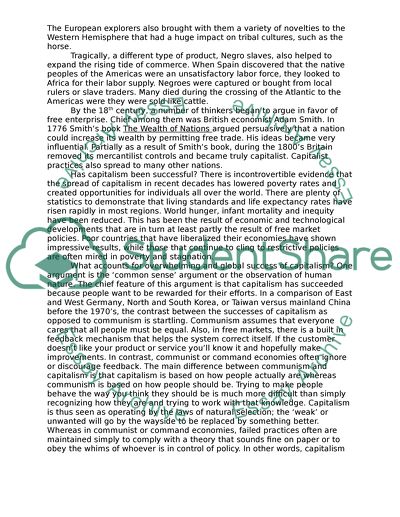Cite this document
(“Capitalism Essay Example | Topics and Well Written Essays - 500 words - 2”, n.d.)
Retrieved from https://studentshare.org/history/1610962-capitalism
Retrieved from https://studentshare.org/history/1610962-capitalism
(Capitalism Essay Example | Topics and Well Written Essays - 500 Words - 2)
https://studentshare.org/history/1610962-capitalism.
https://studentshare.org/history/1610962-capitalism.
“Capitalism Essay Example | Topics and Well Written Essays - 500 Words - 2”, n.d. https://studentshare.org/history/1610962-capitalism.


